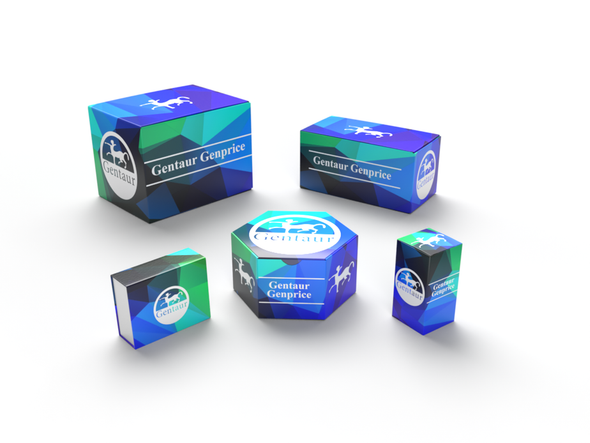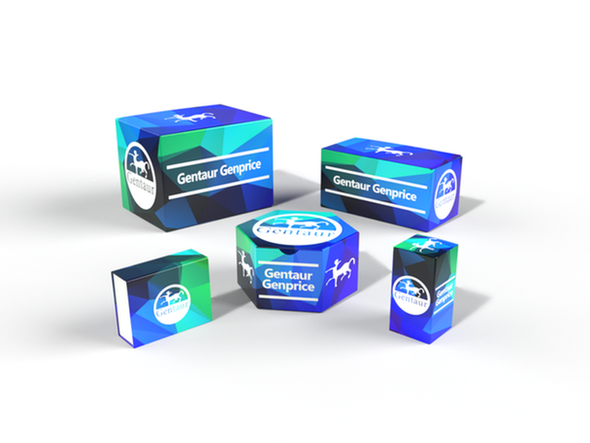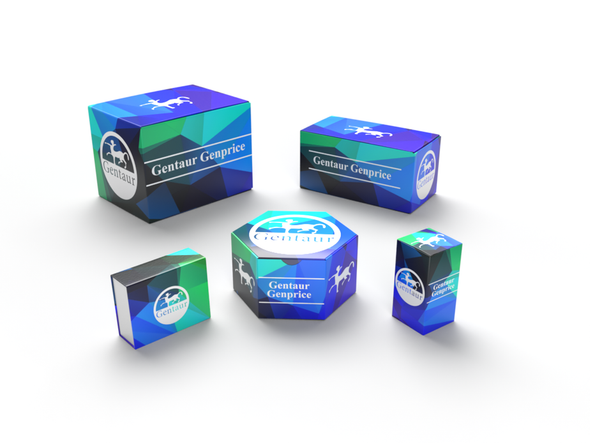740
Rabbit Prolactin-inducible protein (PIP) ELISA Kit | AE27379RB
- SKU:
- 740-AE27379RB
- Availability:
- Usually ships in 5 working days
Description
Rabbit Prolactin-inducible protein (PIP) ELISA Kit | AE27379RB | Gentaur UK, US & Europe Distribution
Species Reactivity: Rabbit (Oryctolagus cuniculus)
Abbreviation: PIP
Alternative Name: GCDFP-15; GCDFP15; GPIP4; prolactin-inducible protein
Application: ELISA
Range: 0.625-40 ng/mL
Sensitivity: 0.255 ng/mL
Intra-Assay: ≤4.5%
Inter-Assay: ≤8.4%
Recovery: 0, 96
Sample Type: Serum, Plasma, Other biological fluids
Detection Method: Sandwich
Analysis Method : Quantitive
Test Principale: This assay employs a two-site sandwich ELISA to quantitate PIP in samples. An antibody specific for PIP has been pre-coated onto a microplate. Standards and samples are pipetted into the wells and anyPIP present is bound by the immobilized antibody. After removing any unbound substances, a biotin-conjugated antibody specific for PIP is added to the wells. After washing, Streptavidin conjugated Horseradish Peroxidase (HRP) is added to the wells. Following a wash to remove any unbound avidin-enzyme reagent, a substrate solution is added to the wells and color develops in proportion to the amount of PIP bound in the initial step. The color development is stopped and the intensity of the color is measured.
Product Overview: The hormonally responsive prolactin-inducible protein gene is expressed in benign and malignant breast tumor tissues and in some normal exocrine organs such as sweat, salivary, and lacrimal glands.The PIP gene is 7 kb long with 4 exons ranging from 106 bp to 223 bp. PIP is overexpressed in 80% of primary and metastatic breast cancers, is duplicated in the breast carcinoma cell line T47D. The 2 copies are organized as a large palindrome, lying 'in loco' on one chromosome 7. The FRA7I fragile site lies 2 Mb telomeric to the PIP gene and sets the distal end of the repeated sequence. Breakage at the FRA7I site was repaired by 1 cycle of the breakage--fusion-bridge (BFB) cycle mechanism, resulting in amplification of the PIP gene.
Stability: The stability of ELISA kit is determined by the loss rate of activity. The loss rate of this kit is less than 5% within the expiration date under appropriate storage condition. The loss rate was determined by accelerated thermal degradation test. Keep the kit at 37°C for 4 and 7 days, and compare O.D.values of the kit kept at 37°C with that of at recommended temperature. (referring from China Biological Products Standard, which was calculated by the Arrhenius equation. For ELISA kit, 4 days storage at 37°C can be considered as 6 months at 2 - 8°C, which means 7 days at 37°C equaling 12 months at 2 - 8°C) .










